A Temporary Occupancy Permit (TOP) is issued by a building surveyor under the Building Act 2016.
The permit allows the use of an existing building or temporary structure for a short term activity such as a public or a private event.
A Temporary Occupancy Permit may be granted for up to three years for a structure that is going to be used in the same way, under the same conditions.
When is a temporary occupancy permit required?
- temporarily use an existing building for a use which is not the normal use permitted. An example is holding a market in a warehouse. The normal use of the warehouse is goods storage; the temporary use is a public market.
- operate an event or function using temporary structures. For example booths, tents, marquees, seating or stages.
- put up a temporary building or a temporary structure on private property. For example a temporary boat or vehicle shelter, a temporary radio mast or for a wedding or party.
Under the Building Act 2016 a person must not occupy an existing building or temporary structure without an occupancy permit unless:
- a temporary occupancy permit is in force; or
- a temporary occupancy permit is not required.
Further examples of when a temporary occupancy permit may be required
- outdoor concerts, rallies, festivals, or similar events where there are temporary stages, tiered seating or temporary shelters erected
- indoor entertainment or events in an existing building e.g. a bush dance held in a shearing shed; a food and wine festival held in a warehouse
- markets, (either indoor or outdoor), fairs, shows, carnivals and rodeos
- sporting events where there are temporary structures erected e.g. car rallies, rowing carnivals, school sports days.
An owner or an agent of an owner may apply through their building surveyor for a Temporary Occupancy Permit. The application form is available from your building surveyor.
Exemptions from a temporary occupancy permit
Some types of smaller temporary structures are exempt from requiring a Temporary Occupancy Permit. Exemptions are detailed in the Building Regulations 2016.
Mobile structures which do not require a temporary occupancy permit
- mobile food vans
- mobile accommodation at a caravan park, a camping ground or similar area
- portable toilets
- on a construction site, scaffolding, cranes, hoardings, or site sheds
- prefabricated buildings less than 50m² for temporary use.
Tents, booths or gazebos which do not require a temporary occupancy permit
- a tent, booth or gazebo with floor area of less than 75m² if it is the only one on the site and other criteria are met:
- used for two days or less
- does not have an ignitable fuel source or electrical wiring
- does not need off-site disposal of wastewater
- a tent, booth or gazebo with a maximum floor area of 20m² open on one side and 10m away from an ignitable fuel source (such as a cooking facility)
- a tent for temporary use in a caravan park, camping ground or similar area.
Exempt groups of temporary structures at markets and carnivals
Specific exemptions from a permit also apply to groups of small tents, stalls and gazebos used by stallholders for shelter and storage. The maximum size of each group of structures is 80m² and more than one group is permitted on a site as long as there is adequate separation between them.
Special safety criteria also apply to any structures where an ignitable fuel is used, such as for cooking.
Refer to regulation 70 of the Building Regulations 2016 for more details of what are exempt structures and the specific conditions that may apply.
Building owners, event managers, stall holders and people putting up structures must comply with all other legal requirements before an event or new use begins.
Temporary occupancy permits for public gatherings
A Place of Assembly Licence is required under the Public Health Act 1997 to use or lease a place where the public congregates for special events. This is to protect the health and safety of patrons. This applies to mass gatherings only (1000 people present for at least 2 hours).
Apply at your Local Council for a Place of Assembly licence.
Food
If your event is serving food you should contact your Local Council to make sure you meet the minimum food safety requirements. The Department of Health and Human Services Guidelines for Mobile Food Businesses 2015 are available. The guideline was developed for individuals, businesses, charities and community organisations that operate mobile food businesses (for example food vans and temporary food stalls).
Alcohol
You may need a liquor licence if serving alcohol at an event. More information is available from the Liquor and Gaming Branch of the Department of Treasury.
Workplace health and safety
The place where the temporary structure is put up and used by the public is a workplace.
Markets
Contact your Local Council to see if there are specific By-Laws regulating markets.
This page has been produced and published by the Consumer Building and Occupational Services Division of the Department of Justice. Although every care has been taken in production, no responsibility is accepted for the accuracy, completeness, or relevance to the user's purpose of the information. Those using it for whatever purpose are advised to verify it with the relevant government department, local government body or other source and to obtain any appropriate professional advice. The Crown, its officers, employees and agents do not accept liability however arising, including liability for negligence, for any loss resulting from the use of or reliance upon the information and/or reliance on its availability at any time.

